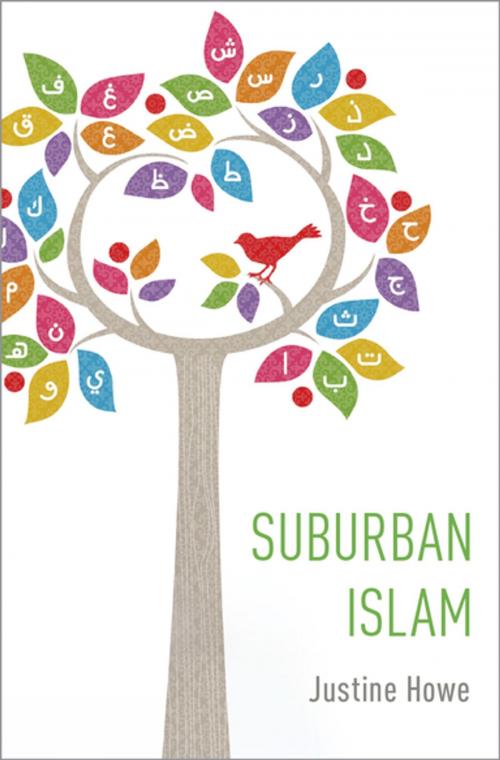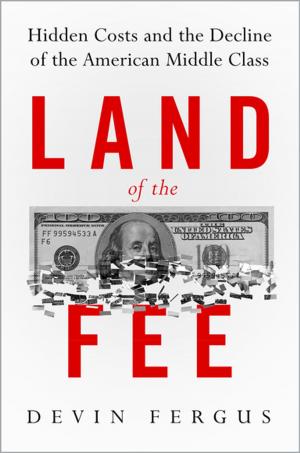Suburban Islam
Nonfiction, Religion & Spirituality, Christianity, Church, Church & State, Social & Cultural Studies, Social Science| Author: | Justine Howe | ISBN: | 9780190863067 |
| Publisher: | Oxford University Press | Publication: | January 2, 2018 |
| Imprint: | Oxford University Press | Language: | English |
| Author: | Justine Howe |
| ISBN: | 9780190863067 |
| Publisher: | Oxford University Press |
| Publication: | January 2, 2018 |
| Imprint: | Oxford University Press |
| Language: | English |
For many American Muslims, the 9/11 attacks and subsequent War on Terror marked a rise in intense scrutiny of their religious lives and political loyalties. In Suburban Islam, Justine Howe explores the rise of "third spaces," social surroundings that are neither home nor work, created by educated, middle-class American Muslims in the wake of increased marginalization. Third spaces provide them the context to challenge their exclusion from the American mainstream and to enact visions for American Islam different from those they encounter in their local mosques. One such third space is the Mohammed Alexander Russell Webb Foundation, a family-oriented Muslim institution in Chicago's suburbs. Howe uses Webb as a window into how Muslim American identity is formed through the interplay of communal interpretive practices, institutional rituals, and everyday life. The diverse Muslim families of the Webb Foundation have transformed hallmark secular suburbanite activities like football games, apple picking, and camping trips into acts of piety--rituals they describe as the enactment of "proper" American Muslim identity. Howe analyzes the relationship between these consumerist practices and the Webb Foundation's adult educational programs, through which participants critique what they call "cultural Islam." They envision creating an "indigenous" American Islam characterized by gender equality, reason, and pluralism. Through changing configurations of ethnicity, gender, and socioeconomic class, Webb participants imagine a "seamless identity" that marries their Muslim faith to an idealized vision of suburban middle-class America. Suburban Islam captures the fragile optimism of educated, cosmopolitan American Muslims during the Obama presidency, as they imagined a post-racial, pluralistic, and culturally resonant American Islam. Even as this vision aims to be more inclusive, it also reflects enduring inequalities of race, class, and gender.
For many American Muslims, the 9/11 attacks and subsequent War on Terror marked a rise in intense scrutiny of their religious lives and political loyalties. In Suburban Islam, Justine Howe explores the rise of "third spaces," social surroundings that are neither home nor work, created by educated, middle-class American Muslims in the wake of increased marginalization. Third spaces provide them the context to challenge their exclusion from the American mainstream and to enact visions for American Islam different from those they encounter in their local mosques. One such third space is the Mohammed Alexander Russell Webb Foundation, a family-oriented Muslim institution in Chicago's suburbs. Howe uses Webb as a window into how Muslim American identity is formed through the interplay of communal interpretive practices, institutional rituals, and everyday life. The diverse Muslim families of the Webb Foundation have transformed hallmark secular suburbanite activities like football games, apple picking, and camping trips into acts of piety--rituals they describe as the enactment of "proper" American Muslim identity. Howe analyzes the relationship between these consumerist practices and the Webb Foundation's adult educational programs, through which participants critique what they call "cultural Islam." They envision creating an "indigenous" American Islam characterized by gender equality, reason, and pluralism. Through changing configurations of ethnicity, gender, and socioeconomic class, Webb participants imagine a "seamless identity" that marries their Muslim faith to an idealized vision of suburban middle-class America. Suburban Islam captures the fragile optimism of educated, cosmopolitan American Muslims during the Obama presidency, as they imagined a post-racial, pluralistic, and culturally resonant American Islam. Even as this vision aims to be more inclusive, it also reflects enduring inequalities of race, class, and gender.















